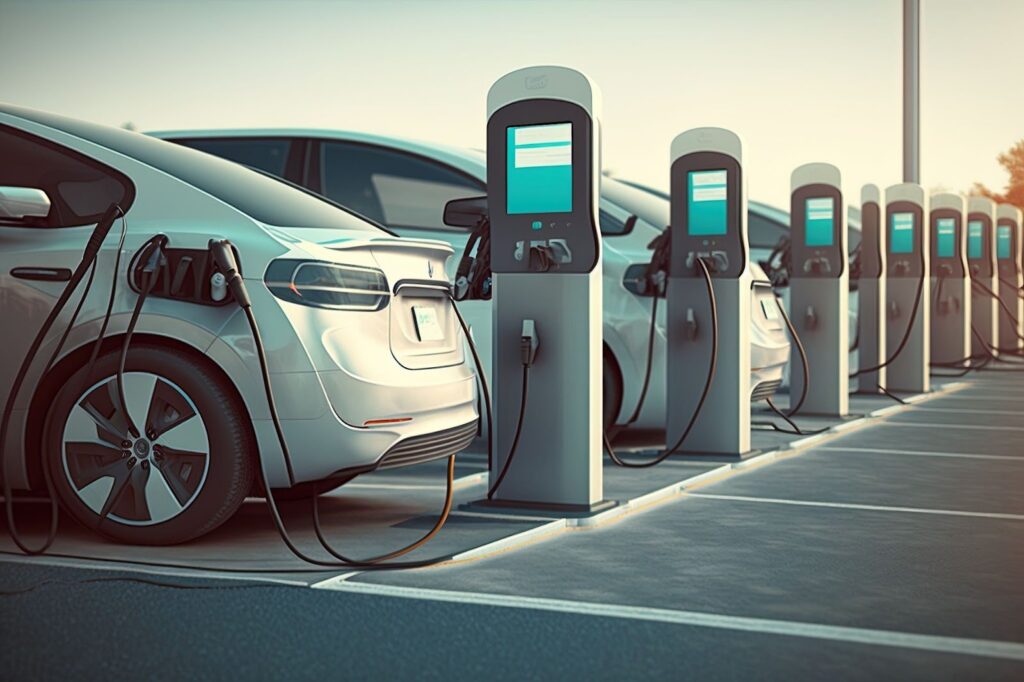
Electric vehicles (EVs) are becoming increasingly common on UK roads. In fact, there are now over 1.2 million of them—a staggering increase from just 98,000 in 2019 (The Times). But as more people make the switch to electric, charging problems are becoming a widespread frustration. Whether it’s a charger that refuses to start, a connection that keeps dropping, or an EV that won’t charge at full speed, these issues can be disruptive and downright annoying.
Most charging problems occur with AC charging, which is the go-to method for home and workplace charging. While generally reliable, AC chargers can suffer from power supply issues, software bugs, and even environmental factors. In some situations, switching to a DC Charger can resolve issues more efficiently. Before you jump to conclusions or call in an electrician, here are three key things to check first.
1. Check the Basics: Power Supply and Connections
It might sound obvious, but the simplest problems are often the easiest to overlook. If your EV isn’t charging, start by running through these quick checks:
- Is the charger properly plugged in? It may seem trivial, but loose connections are a common culprit. Make sure everything is securely in place.
- Has a fuse tripped? If you’re charging at home and suddenly lose power, take a look at your fuse box. EV chargers draw a significant amount of electricity, which can trip circuit breakers.
- Are the cables in good shape? Check for any visible wear and tear, frayed wires, or loose connections. A damaged charging cable could be the root of the issue.
A driver in Manchester kept experiencing random charging cut-outs. The problem? A worn-out cable that wasn’t maintaining a stable connection. Swapping it for a new one solved the issue (Cita EV).
2. Look for Software or Compatibility Issues
Surprisingly, many EV charging issues stem from software glitches or compatibility mismatches. Modern EVs and chargers rely on firmware to communicate, and if they’re not in sync, things can go wrong.
Here’s what to check:
- Firmware updates: If your EV or charger hasn’t had an update in a while, check if one is available. Manufacturers often release patches to fix charging-related bugs.
- Charging station compatibility: Not all chargers work seamlessly with every EV model. If a public charger isn’t working, try another one nearby to see if it’s an issue with the station itself.
- Soft reset: Some EVs and chargers have a reset function that can clear minor software glitches and restore proper operation.
A Birmingham EV owner was struggling with slow charging speeds at home. After updating the charger’s firmware, the issue disappeared entirely (Cita EV).
3. Consider Environmental Factors: Heat, Cold & Overuse
Temperature can have a much bigger impact on EV charging than many people realise. Extreme heat or cold can slow charging, interrupt the process, or even damage components.
Heat-Related Charging Issues:
- Overheating chargers – If your home charger sits in direct sunlight all day, it may overheat and shut down. Moving it to a shaded, well-ventilated area can help.
- Thermal protection mode – Some EVs automatically slow charging speeds to prevent battery overheating, especially in summer.
Cold Weather Charging Issues:
- Longer charging times – Cold batteries charge more slowly. If your EV supports pre-conditioning, warming the battery before charging can help.
- Public chargers struggling in extreme cold – Some charging stations are less reliable in freezing conditions. If one isn’t working, try another nearby.
A London driver found that his charger kept shutting off during a heatwave. The simple fix? Moving it to a cooler, shaded spot (Cita EV).
When to Call a Professional
If you’ve gone through all the basic troubleshooting steps and your EV still won’t charge properly, it may be time to get expert help. Here are a few signs that you should call a professional:
- Burnt smells or sparks – If you notice any signs of electrical burning or sparking near the charger or plug, stop using it immediately.
- The charger keeps cutting out or overheating – If this happens regularly, a professional should inspect the unit.
- Your home’s wiring isn’t up to standard – Older wiring systems may struggle to handle the high power demand of EV chargers.
Final Thoughts
EV charging problems can be frustrating, but more often than not, the solution is simple—checking connections, updating software, or adjusting for weather conditions. Running through these basic troubleshooting steps can often save you from unnecessary repair costs.
Still having trouble? It might be time to get in touch with a qualified electrician or charger technician. Keeping your charger in good condition and staying up to date with software updates will help you avoid most common EV charging headaches.
